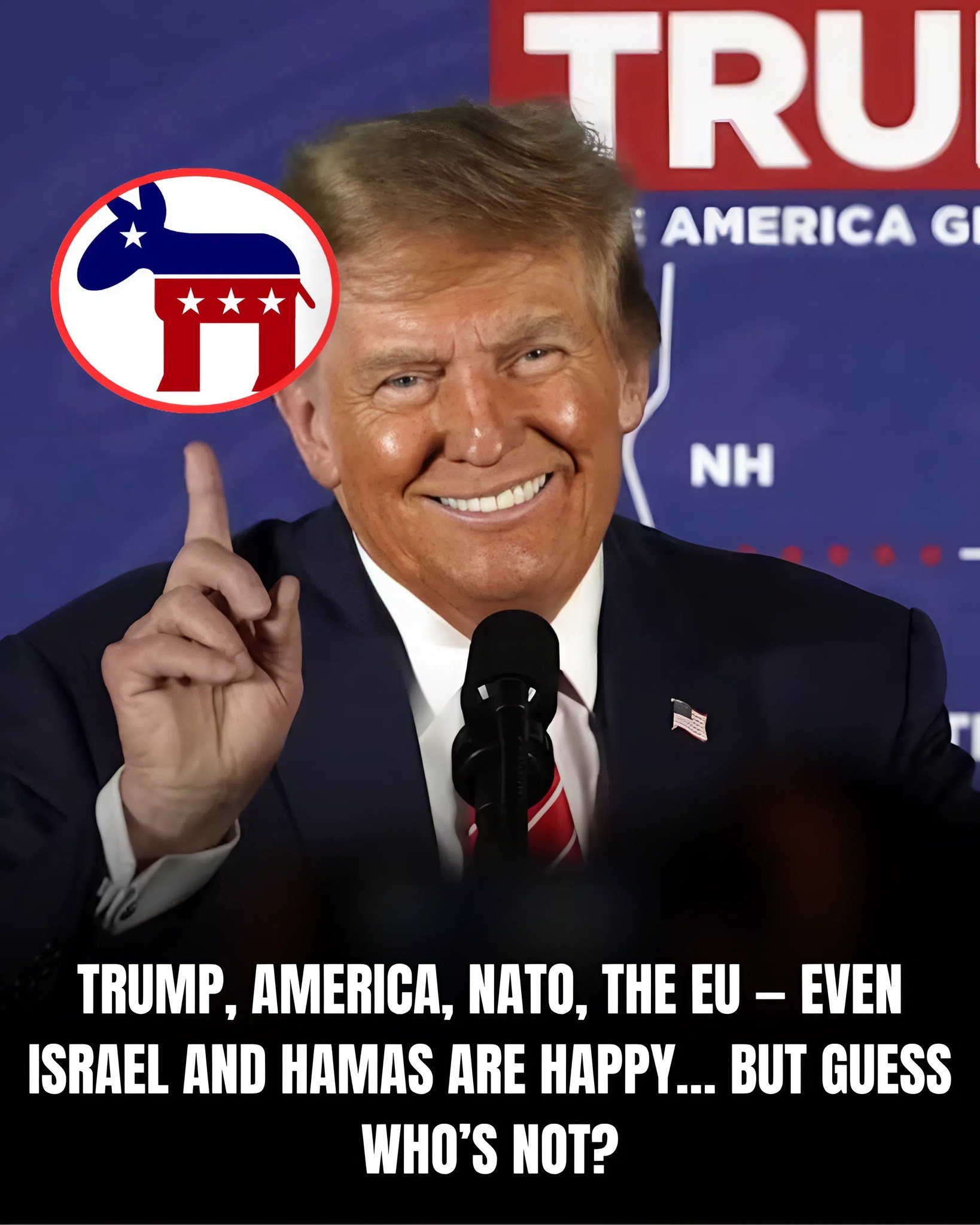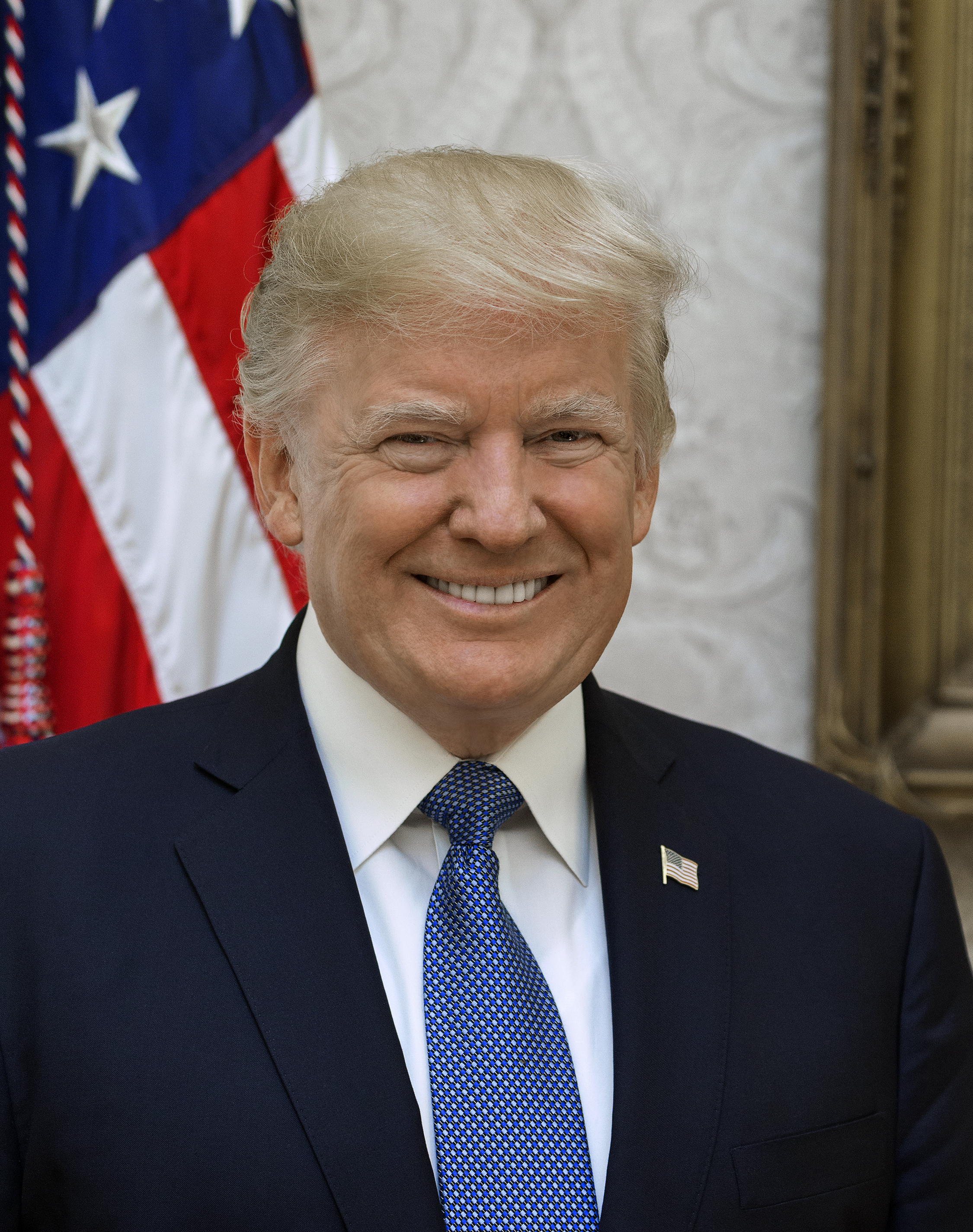
WHEN THE WORLD SMILED — AND ONE SIDE COULDN’T
Trump was smiling that day — not the sharp, confident grin of a politician, but the genuine kind that comes when the impossible suddenly becomes real. Cameras flashed, flags waved, and for once, the White House lawn didn’t feel like a battlefield. It felt like a stage where something good — maybe even historic — had just happened.
Americans were smiling too. Not the cynical, “let’s see how long this lasts” kind of smile, but the kind that comes with a quiet sigh of relief. After years of division, arguments, and endless noise, it seemed like there was finally something everyone could celebrate.

And across the ocean, NATO and the European Union — two names that rarely agreed on much — were smiling too. Diplomats, for once, weren’t hiding behind cautious statements or guarded optimism. They were openly hopeful. The headlines called it a “turning point,” and for a moment, it truly felt like the world was breathing again.
But not everyone was happy.
Somewhere between the cheering crowds and congratulatory tweets, there was a corner of America that couldn’t bring itself to join in. A group whose identity had been built on opposing Trump at every turn — who, even in the face of peace, refused to clap.
The clue was simple. It started with a D… and ended with emocrats.

Their reactions weren’t explosive; they were subtle — a series of carefully worded statements, interviews that praised “progress” but questioned “motives.” There was talk of “timing,” “strategy,” and “political theater.” But beneath all that politeness was something sharper: discomfort.
Because how do you oppose a man who just made the world smile?
Behind closed doors, strategists were scrambling. Commentators were rewriting talking points. For years, Trump had been painted as the divider, the chaos-maker, the unpredictable force. But now, he was being called something else — the peacemaker.
Cable news anchors paused mid-sentence. Late-night comedians hesitated before cracking the next joke. Even critics, the ones who never ran out of words, found themselves strangely silent.
It wasn’t that they didn’t want peace — of course they did. But peace brokered by Trump? That was harder to swallow.
Meanwhile, on Main Street, Americans didn’t care who got the credit. Veterans were calling it a “victory for common sense.” Families said it was “about time someone got it done.” And on social media, photos of celebrations overseas flooded timelines — children waving flags, leaders shaking hands, and people hugging in streets that had known too much fear for too long.

The moment was bigger than politics. It wasn’t about left or right, red or blue. It was about something that had become rare in modern times — hope.
And yet, in Washington, that same hope made some people nervous. Because for every handshake Trump made, for every foreign leader who smiled beside him, the narrative shifted just a little bit more. The man they said would start wars was now the man ending them.
The irony was hard to miss.
In one corner, the world applauded. In another, the opposition folded their arms and whispered about “ulterior motives.” But history has a way of ignoring whispers. It listens to results.
Trump didn’t gloat that day. He didn’t need to. His smile said it all. The kind of smile that comes not from victory, but from vindication.
And as the sun set on a day that might one day fill the pages of history books, one truth was hard to ignore — when the world smiled, one side scowled.
Because sometimes, the hardest thing for your enemies isn’t your mistakes.
It’s your success. End story.
